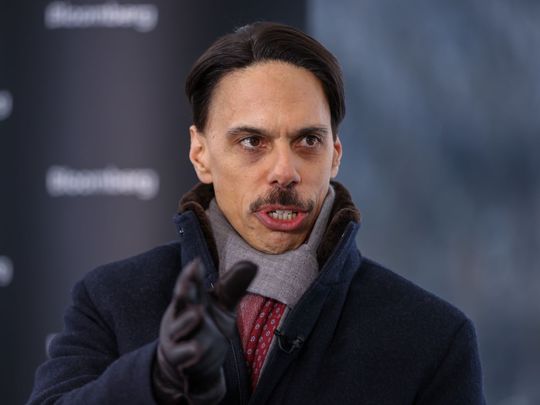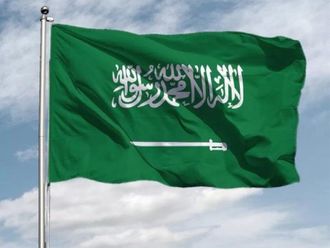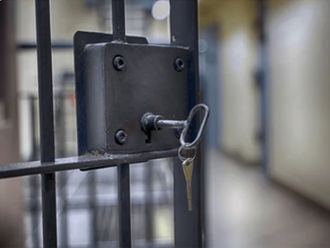
Riyadh: Saudi Arabia’s foreign minister said an agreement to create a Palestinian state would be a precondition for the biggest Arab economy to establish formal diplomatic ties with Israel.
“We have said consistently that we believe normalisation with Israel is something that is very much in the interest of the region,” Prince Faisal bin Farhan said on a Bloomberg TV interview in Davos, Switzerland on Thursday.
“However, true normalisation and true stability will only come through giving the Palestinians hope, through giving the Palestinians dignity.”
“That requires giving the Palestinians a state, and that’s the priority,” he said.
Neighbours of the kingdom including the United Arab Emirates and Bahrain formalised relationships with Israel in 2020 under a US-brokered agreement, known as the Abraham Accords. Israel has since been looking to expand on that breakthrough with other Arab countries, and Prime Minister Benjamin Netanyahu discussed ways to improve relations with Saudi Arabia with US National Security Advisor Jake Sullivan earlier on Thursday.
Sullivan also heard from the Palestinians that their hopes of achieving statehood - long a Riyadh condition for normalising relations with Israel - were being endangered by Israeli actions.
Netanyahu, who regained the top office last month for a sixth term, has pledged to forge Saudi ties that would round out normalisation pacts he signed with the UAE and Bahrain.
A statement from Netanyahu’s office said he and Sullivan discussed Iran as well as “the next steps to deepen the Abraham Accords and expand the circle of peace, with an emphasis on a breakthrough with Saudi Arabia”.
Their discussions were followed by a virtual meeting among Sullivan and his Israeli, Emirati and Bahraini counterparts.
Resolving the conflict
They discussed cooperation in areas such as emerging technology, regional security and commerce, according to a joint statement.
Israel and Gulf allies share fears over Iran, but Netanyahu’s return at the head of a religious-nationalist coalition government has stoked concern of an escalation in the decades-old conflict with the Palestinians.
On Wednesday, Prince Faisal urged Israel’s new government to engage seriously on resolving the conflict.
Sullivan also stressed the US commitment to a two-state solution in the Israel-Palestinian dispute during his visit, White House national security spokesman John Kirby said.
US-brokered peace talks aimed at establishing a Palestinian state collapsed in 2014. Among stumbling blocks is Gaza, another Palestinian territory, which is under the control of Hamas Islamists who spurn permanent coexistence with Israel.
Netanyahu’s new government includes partners who oppose Palestinian statehood and want Israel’s West Bank colonies expanded.
The Palestine conflict has long been a sticking point, and the situation is only likely to worsen after an Israeli right-wing coalition won last year’s elections. The coalition partners in Netanyahu’s new government seek Israeli sovereignty over the West Bank and reject a Palestinian state.
Prince Faisal said the US continues to be Saudi Arabia’s top security partner, even as ties warm between the kingdom and China.
The US is “the most active security partner in the region,” he said, though “China continues to be an important trading partner.”
On Syria, the foreign minister said countries in the region should work together to find a “political solution” to an ongoing 12-year civil war.
“We are working with our partners to figure out a way to engage with the government in Damascus in a way that delivers tangible movements toward a political resolution,” he said. “That’s going to take some work.”
Prince Faisal added that an end to the Russia-Ukraine war could also be achieved “through negotiation.”
In the meantime, Saudi Arabia is engaging with Russia over keeping the oil price “relatively stable,” he said.












